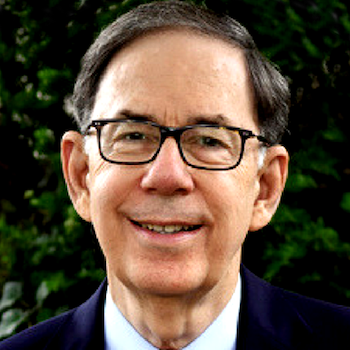Back to series


Why Pray?
Click here to open a Print - Friendly PDF
Yes, why pray?
If God is omniscient, doesn’t he know everything we need? And if he is both omnipotent and good, won’t he provide it whether we pray or not? So goes a common line of reasoning about prayer which influences many of us, to our own impoverishment and the detriment of Christ’s kingdom.
This reasoning has a certain logic and seems to have some biblical plausibility. Scripture clearly tells us that God is all-knowing: “Nothing in all creation is hidden from God’s sight. Everything is uncovered and laid bare before the eyes of him to whom we must give an account” (Heb. 4:13), and that he is all-powerful and “...does as he pleases with the powers of heaven and the peoples of the earth. No one can hold back his hand or say to him: ‘What have you done?’” (Da. 4:35), and that “...the Lord is good and his love endures forever; his faithfulness continues through all generations” (Ps. 100:5).
However, to infer from these truths that prayer is unnecessary is to overlook the broader teaching of Scripture. The Bible does indeed teach that everything we need for life and godliness is found in God, who is willing and able to give it and knows our need before we ask. But it does not teach that he bestows these riches upon us automatically, as a matter of right. Jesus says:
Ask and it will be given to you; seek and you will find; knock and the door will be opened to you. (Mt. 7:7)
Have faith in God.... whatever you ask for in prayer, believe that you have received it, and it will be yours. (Mk. 11:22, 24)
This kind can come out only by prayer. (Mk. 9:29)
Get up and pray so that you will not fall into temptation. (Lk. 22:46)
If you believe, you will receive whatever you ask for in prayer. (Mt. 21:22)
...they should always pray and not give up. (Lk. 18:1)
The clear import of these and similar passages is that, in many instances, we can lay hold of God’s promises only through believing prayer.
John Calvin places great stress on the importance of prayer, saying: “Words fail to explain how necessary prayer is ... (Institutes III, 20, 2). He held that it is, “...by the benefit of prayer that we reach those riches which are laid up for us with the Heavenly Father” and that...
...after we have been instructed by faith to recognize that whatever we need and whatever we lack is in God... it remains for us to seek in him, and in prayers to ask of him, what we have learned to be in him. (Institutes III, 20, 1)
He saw no conflict between prayer and providence but, rather, taught that in prayer “...we invoke the presence both of his providence ... and of his power...” (Institutes III, 20, 2).
Prayer and providence then, far from being antithetical, are actually reciprocal. Providence inspires prayer and prayer invokes providence. Here divine sovereignty and human responsibility mysteriously converge in a way we cannot fully explain but which is nonetheless real.
By failing to pray, can we forfeit personal blessings which God would otherwise bestow? It does appear that in his sovereignty God has ordained believing prayer as a necessary means for our receiving many of his promises. Therefore, James can say “You do not have because you do not ask” (4:2). And, Calvin says
...to us nothing is promised to be expected from the Lord, which we are not also bidden to ask of him in prayers... and he is inactive, as if forgetting us, when he sees us idle and mute (Institutes III, 20, 2-3).
And so, while some measure of blessing comes to everyone because God “causes his sun to rise on the evil and the good,” it is only through prayer that we lay hold of many of the riches he promises.
 By failing to pray, can we hinder the work of God’s kingdom? Scripture is clear that ultimately God’s kingdom will prevail over the kingdoms of this world and that his purposes will be fulfilled. Yet, Scripture also teaches that believing prayer is somehow a significant part of that process. Jesus teaches us to pray “...your kingdom come, your will be done on earth as in heaven” (Mt. 6-10); and to “ask the Lord of the harvest, therefore, to send out workers into his harvest field” (Mt. 9:38). And he promises, “I will do whatever you ask in my name, so that the son may bring glory to the Father. You may ask me anything in my name and I will do it” (Jn. 14:13-14). In Paul’s ministry prayer is consistently a vital element for open doors and effective ministry (Ep. 6:19f; Col. 4:3-4; 2 Th. 3:1-2), and a key to his deliverance from prison (Php. 1:19). The Apostles devoted themselves “...to prayer and the ministry of the word” (Ac. 6:4). And, James exhorts us to imitate the faith and prayer of Elijah, saying, “the fervent prayer of a righteous man avails much.” (5:16- 18). The inescapable conclusion from these and many similar passages is that the Sovereign God has ordered his creation in such a way as to allow prayer to play a vital part in the outworking of his purposes.
By failing to pray, can we hinder the work of God’s kingdom? Scripture is clear that ultimately God’s kingdom will prevail over the kingdoms of this world and that his purposes will be fulfilled. Yet, Scripture also teaches that believing prayer is somehow a significant part of that process. Jesus teaches us to pray “...your kingdom come, your will be done on earth as in heaven” (Mt. 6-10); and to “ask the Lord of the harvest, therefore, to send out workers into his harvest field” (Mt. 9:38). And he promises, “I will do whatever you ask in my name, so that the son may bring glory to the Father. You may ask me anything in my name and I will do it” (Jn. 14:13-14). In Paul’s ministry prayer is consistently a vital element for open doors and effective ministry (Ep. 6:19f; Col. 4:3-4; 2 Th. 3:1-2), and a key to his deliverance from prison (Php. 1:19). The Apostles devoted themselves “...to prayer and the ministry of the word” (Ac. 6:4). And, James exhorts us to imitate the faith and prayer of Elijah, saying, “the fervent prayer of a righteous man avails much.” (5:16- 18). The inescapable conclusion from these and many similar passages is that the Sovereign God has ordered his creation in such a way as to allow prayer to play a vital part in the outworking of his purposes.
If it is true then, that the fervent prayer of a righteous man avails much, doesn’t the kingdom suffer loss from missed opportunity when we neglect earnest prayer? What would have happened if Moses had not interceded for Israel on Sinai (Ex. 32:1-14), or if Elijah had neglected to pray on Mt. Carmel (1 Ki. 18:36- 39), or if the Jerusalem church had not made earnest prayer for Peter as he awaited execution (Ac. 12:1-5)?
Why pray? Because the Sovereign God, who is indeed omniscient, omnipotent, and good, has established prayer as the means by which we receive what he has promised and help fulfill what he has ordained. One can only wonder what blessings we are missing today both in our personal lives and in our churches because of our failure to earnestly pray. And, one can only wonder what might yet happen if we would follow the examples of Luther, Calvin, Edwards, Whitefield, Spurgeon, and many others, who devoted themselves to prayer. Perhaps it is time for us as individuals and congregations to devote ourselves to prayer and to cry out with the Apostles,
Lord, teach us to pray.

Thomas A. Tarrants
Author, President Emeritus, CSLI Thomas A. Tarrants is President Emeritus of the C.S. Lewis Institute. After serving twelve years as president and nine years as vice President, he retired from his position as Vice President for Ministry and Director, Washington Area Fellows Program, with CSLI in June 2019. He holds a Master's of Divinity Degree, as well as a Doctor of Ministry Degree in Christian Spirituality. Tom is an ordained minister in the Evangelical Church Alliance and a member of the Evangelical Theological Society. He spends his time writing, mentoring, consulting and traveling. His life story is told in Consumed by Hate, Redeemed by Love, published by Thomas Nelson Publishers. COPYRIGHT: This publication is published by C.S. Lewis Institute; 8001 Braddock Road, Suite 301; Springfield, VA 22151. Portions of the publication may be reproduced for noncommercial, local church or ministry use without prior permission. Electronic copies of the PDF files may be duplicated and transmitted via e-mail for personal and church use. Articles may not be modified without prior written permission of the Institute. For questions, contact the Institute: 703.914.5602 or email us.
COPYRIGHT: This publication is published by C.S. Lewis Institute; 8001 Braddock Road, Suite 301; Springfield, VA 22151. Portions of the publication may be reproduced for noncommercial, local church or ministry use without prior permission. Electronic copies of the PDF files may be duplicated and transmitted via e-mail for personal and church use. Articles may not be modified without prior written permission of the Institute. For questions, contact the Institute: 703.914.5602 or email us.
-
Recent Podcasts
A Scientist’s Journey to God – Krister Renard’s story
by Krister Renard, Jana Harmon on October 25, 2024Former atheist, Swedish physicist Krister Renard dismissed God...Read More
-
The Faith of Francis Schaeffer
by Arthur W. Lindsley, Aimee Riegert on October 18, 2024
-
A Cumulative Case for God – Dr. John Studebaker’s story
by John Studebaker on October 11, 2024
-
Recent Publications
Will You Be Ready?
by Thomas A. Tarrants on October 23, 2024Tom Tarrants gives insights on how we can...Read More
-
Should Christians Be Involved with Politics?
by Kerry A. Knott on October 1, 2024
-
Isn ’t Atheism Based on Scientific Fact Whereas Christianity is Based on “Faith”?
by Cameron McAllister on September 1, 2024
0
All Booked
0.00
All Booked
0.00
All Booked
23169
ADVENT CALENDAR: The Amazing Prophecies Fulfilled by the Birth of Jesus Christ
https://www.cslewisinstitute.org/?event=advent-calendar-the-amazing-prophecies-fulfilled-by-the-birth-of-jesus-christ&event_date=2024-11-28®=1
https://www.paypal.com/cgi-bin/webscr
2024-11-28

Next coming event
Days
Hours
Minutes
Seconds
ADVENT CALENDAR: The Amazing Prophecies Fulfilled by the Birth of Jesus Christ
On November 28, 2024 at 6:00 amTags
Speakers

Thomas A. Tarrants
Author, President Emeritus, CSLI
Team Members






